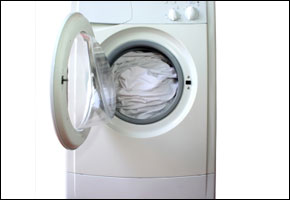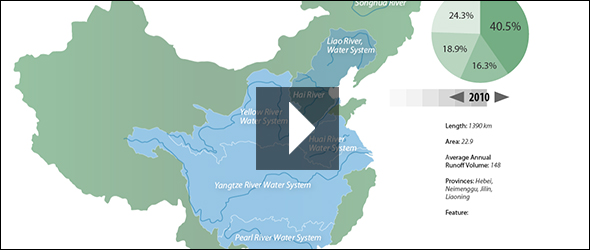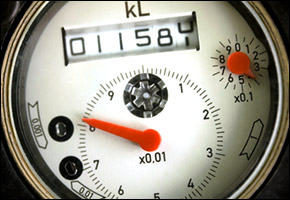Peter Gleick: Why Do You Still Have a Top-loading Washing Machine?

My colleagues and I here at the Pacific Institute have been arguing for more than 15 years that California has enormous potential to save water by improving water use efficiency. We always get push-back from cities, farmers, and other water users who routinely plead they’ve done all they can to save water, despite the blatant evidence to the contrary everywhere we look. And here is some new evidence:
Water Number: 32
Last month, water demand in Los Angeles reached a 32-year low, according to The LA Department of Water and Power – even with a far higher population and a far larger economy. This is precisely what we’ve been arguing for years and continue to argue – both in our comprehensive assessment of the potential for urban water conservation and our newest study of the same potential for improving efficiency in the agricultural sector.
But is that all there is? Have we finally captured all of the water we can by improving the efficiency of use and reducing waste?
Hardly. Not even close. Let me give you one example (and I’m sure every single reader has stories of seeing agricultural sprinklers going in the middle of the hottest days, flood irrigation losing vast quantities of water to the atmosphere, lawn sprinklers gone crazy, or other examples of wasteful and inefficient use):
I was in a meeting last week at the Capitol in Sacramento, with a roomful of smart legislative experts and aides interested in water. But I found even they are confused about the potential of reducing demand as an equivalent (and cheaper and faster and cleaner) option to increasing supply. So I asked the gathering who was still using a top-loading washing machine. Stunningly, easily 80 percent of the people in the room raised their hands. Yet, front-loading washing machines use far, far less water, energy and detergents (and do a better job cleaning your clothes). And we’ve known this for years – even the federal government has new appliance standards for washing machines, and California’s had them for even longer. The Pacific Institute has estimated that replacing JUST old, inefficient washing machines can save more than 100,000 acre-feet per year in California, and at a far lower cost than any new supply option proposed. I had an X-ray the other day with a new digital machine. The images were transmitted to my doctor in seconds, and no water was used. But there are still plenty of old film machines that use and contaminate lots of water. Washing machines and digital X-ray machines are the tip of the iceberg.
Why aren’t we replacing old machines and other inefficient water uses faster? First, ignorance or apathy: people don’t know they can save money, energy, and water, and commercial laundromats have no incentive to cut back since they pass their costs on to consumers. Second, faulty economics: people look at these efficient washing machines in the store and all they see is that they are (sometimes, not always) more expensive than the old-style top loaders. What they don’t see or understand is that over the life of the machine, the savings more than make up for this initial higher cost, so the efficient one is actually cheaper. A third reason is we don’t price water properly to make people care enough to save it. Similar kinds of barriers prevent improvement in agricultural efficiency or commercial and industrial use.
There are solutions to all of these barriers to efficiency improvements (read our reports!). Let’s find them and continue to grow our economy (though, hey, maybe not our population?) with less water.
Dr. Gleick’s blog posts are provided in cooperation with the SFGate. Previous posts can be found here.









I lived in the US 1991-92 and I was flabbergasted by the already then antique top-loaded washing machines. They did a lousy job washing, you had to re-rinse every time to get rid of the detergents! In comparison with what I was used to back in Sweden they were a complete joke. So I am amazed that they are still being sold in the US
/B
PS I am man with long laundry experience :)